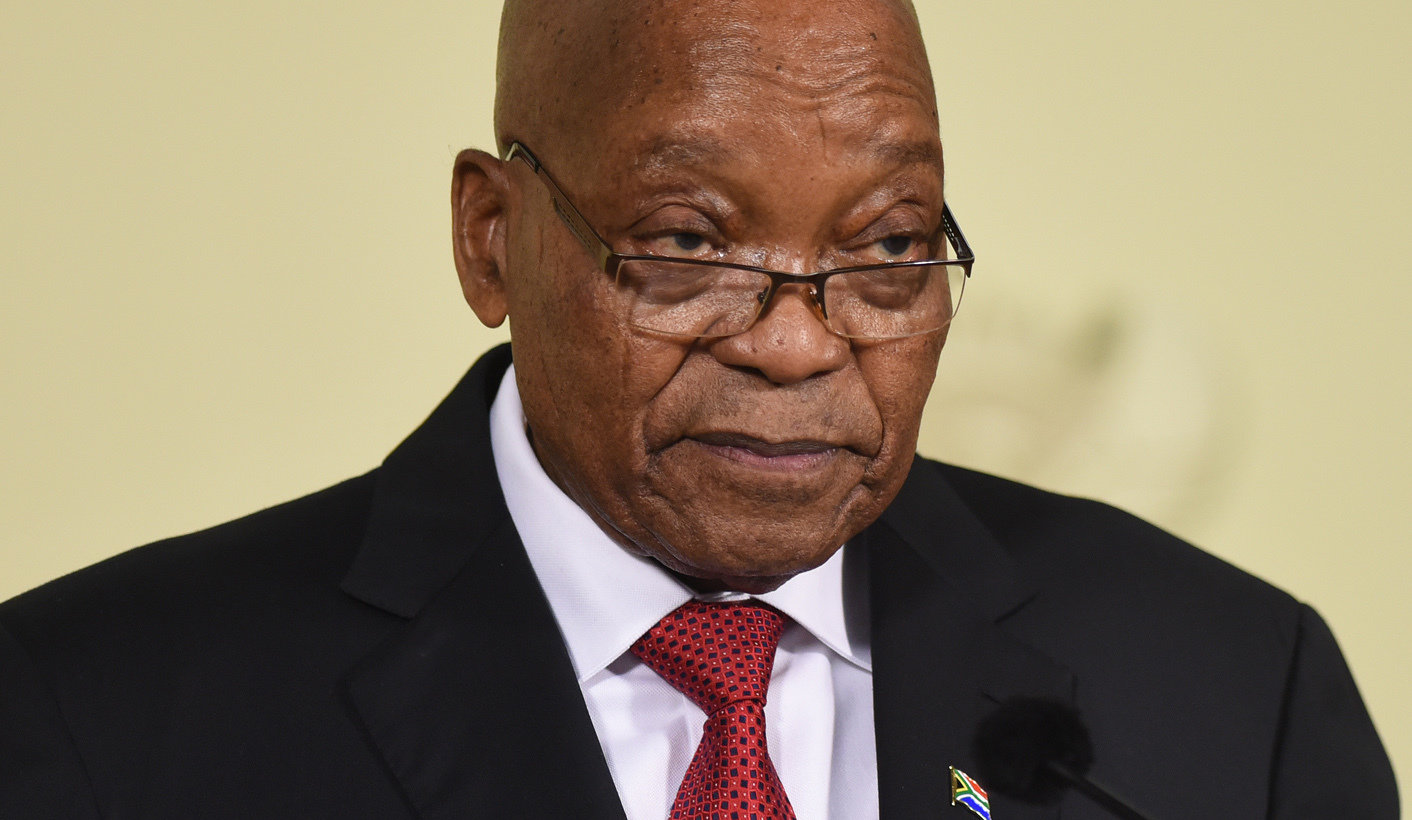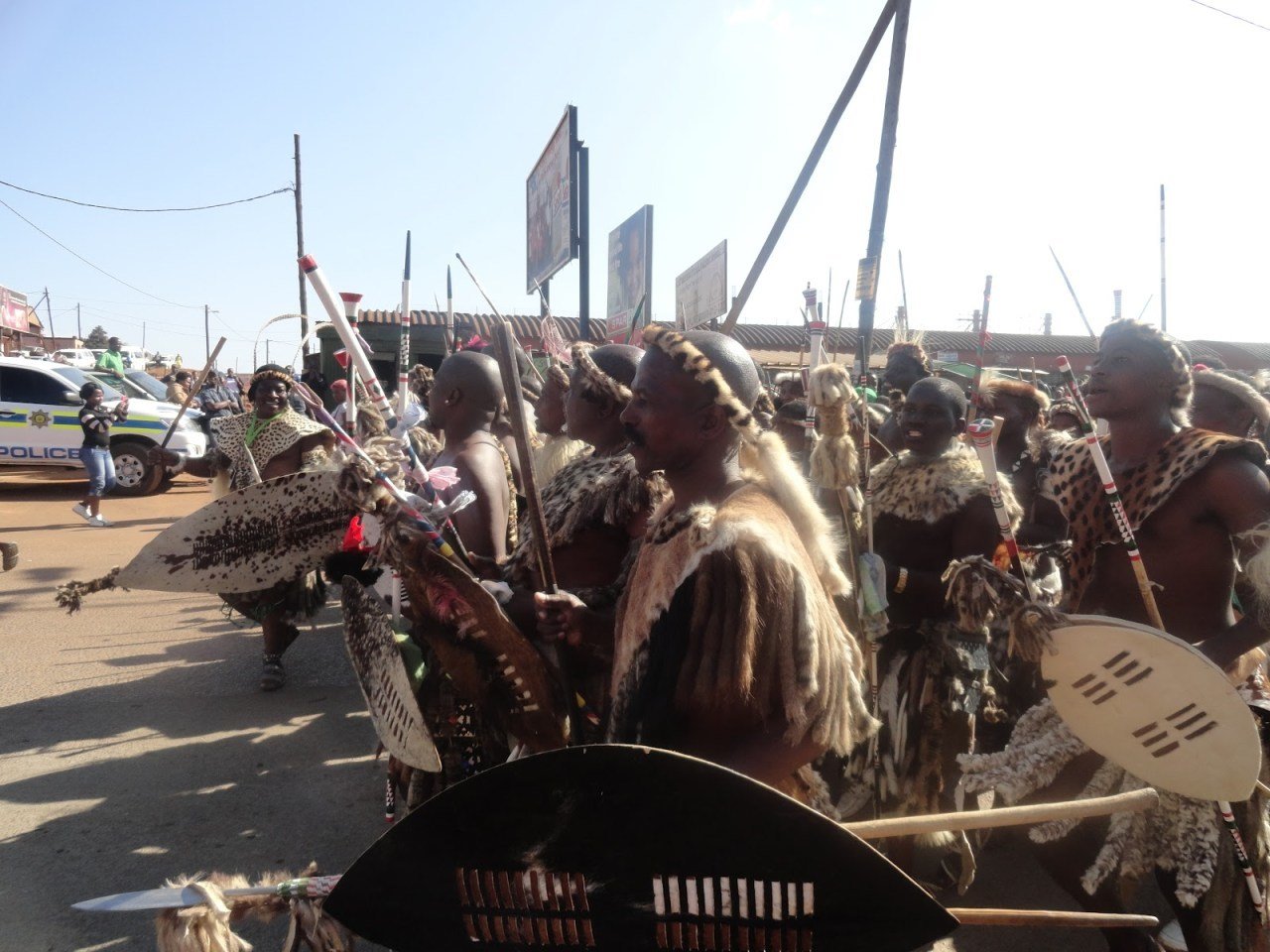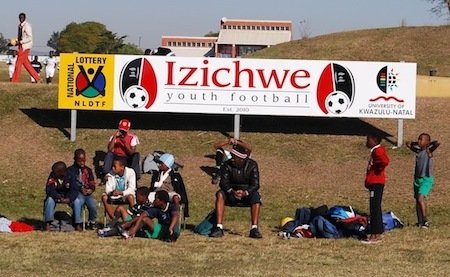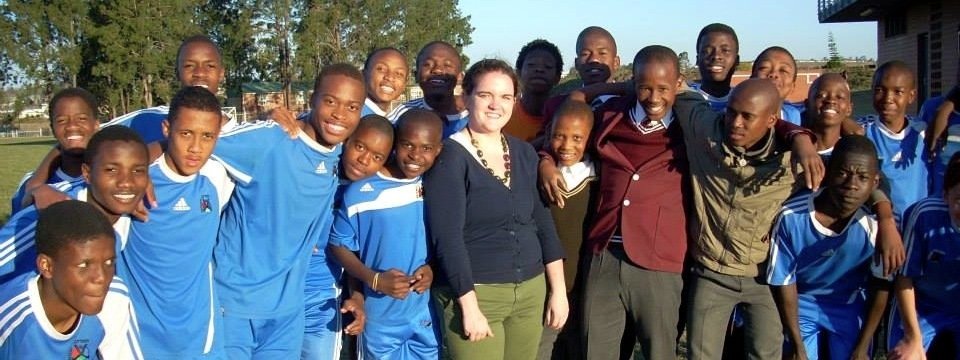The Regiments:
Cultural Histories of Zulu Masculinities and Gender Formation in south africa,
1816-2018
Photo by Greg Marinovich


Former President of the Republic of South Africa
Jacob Zuma (2009-2018)
Umbimbi Lwamabutho Members at a Durban March
January 2018
research questions
-
How have the paths through youth socialization shifted over time?
-
How have leaders deployed the trope of the Zulu warrior in relation to contemporary challenges
-
How did the warrior legacy help construct a distinctive Zulu identity for ethnic nationalist purposes?
-
How has the idea of martial masculinity been understood and enacted by Zulu-speaking men (and women)?
-
How is “history” itself (and the connected idea of the Zulu warrior) deployed as a tool to gain support for various causes, and what is left out by the adoption of this narrow historical bias?
-
How do traditional leaders utilize traditions (like the amabutho) to educate youth and protect cultural traditions?
Izichwe Youth Football Academy


Historiographical contributions
-
Extends earlier studies by considering Zulu martial masculinity over two centuries, thus showing the varied expressions of this tradition in different eras under shifting social, political, and economic constraints
-
Shows that amabutho shaped, and have been shaped by, white anxieties over young Zulu men’s “violent potential” and a need for social control
-
Invites a reconsideration of the role of chiefs and kings in South Africa since 1800
Chapter one:
Before and After Shaka: The Development and Evolution of Amabutho to 1879
Chapter two:
Umcaba osele emasini/The crushed mealies left in the sour milk: The Changing Functions of Amabutho in Natal and Zululand, 1879-1913
chapter three
He is like unto one who is surrounded by the shields of warriors: Amabutho, the Royal House, and Ambiguities of Dependence, 1913-1948
Chapter Four:
The Warrior Is Now a Worker: Modernizing Martial Masculinity in Urban Migrant Communities, 1928-1970
chapter five:
“We fight because we are so plenty”: Zulu Martial Masculinity and the Fight Against Apartheid, 1968-1994
Chapter Six:
Post-Apartheid Zulu Nationalism, Martial Masculinity and the Changing Nature of the Amabutho, 1999 to 2018
PHAMBILI
Dissertation Defense
By Liz Timbs
Dissertation Defense
- 728



